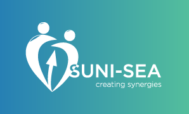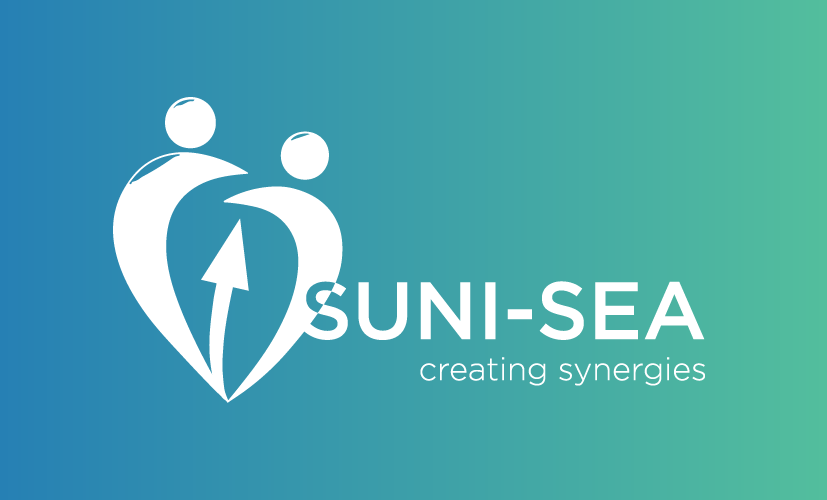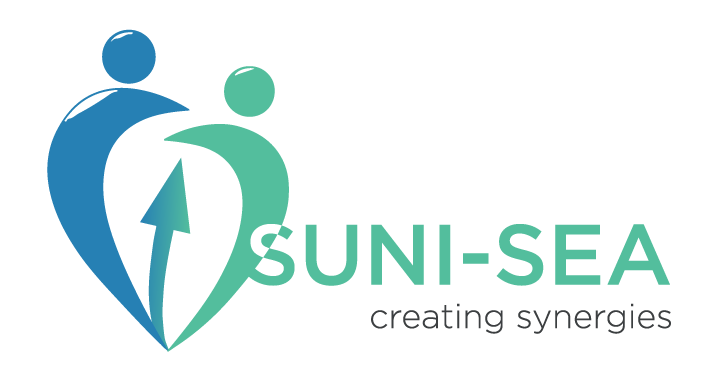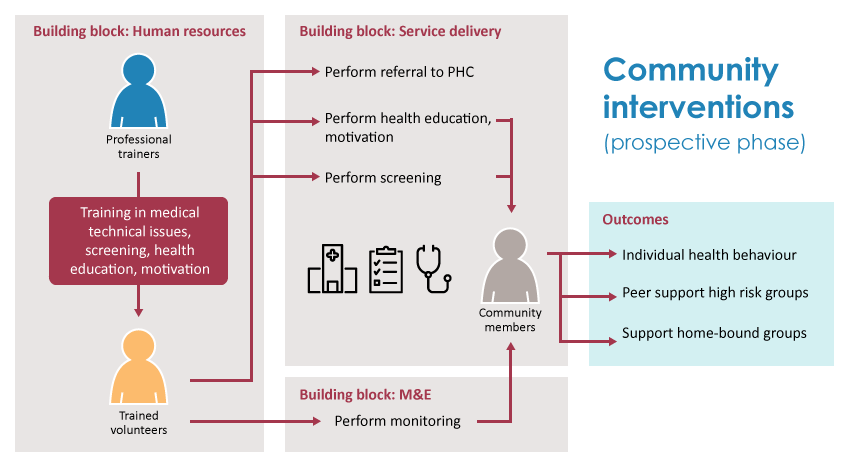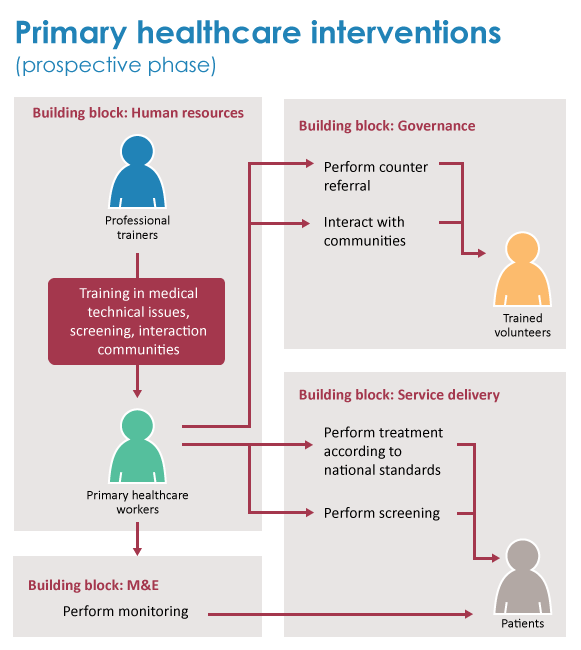Lessons from the retrospective phase
In Indonesia, Myanmar and Vietnam policies are in place and governments are committed to reduce NCDs. Guidelines have been developed and NCD programmes have been designed in the three countries, but these programmes are not reaching enough people (especially men and younger persons). The quality is not good enough, As the service providers at community and primary healthcare level do not have sufficient competencies. Collaboration between community initiatives and primary healthcare providers is not enough.
Governments in Indonesia, Myanmar and Vietnam may be committed to the reduction of NCDs, but in practice, resources are not enough, health workers not available, and medicine not supplied.
Research has been done in the three countries, but evidence for effectiveness and cost-effectiveness is not sufficient.
Aims of the interventions in SUNI-SEA
The aims of SUNI-SEA are:
- More people will be aware of risk factors for NCDs, like overweight, hypertension or smoking: achieving 90% of people will come for screening in target areas;
- More people will get a proper diagnosis of a disease in an early stage: achieving 90% referral of people who have been identified during screening to have a high risk factor;
- More people will get proper treatment for their disease: achieving 90% adherence to treatment (including lifestyle advice) of people who have been diagnosed with hypertension or diabetes.
The focus of the action in SUNI-SEA will be on:
- delivering more services: increase health activities in community groups (ISHCs, ISHGs), add NCD clinics in PHC facilities, with more diagnostic and treatment opportunities;
- Reaching more people: get more men and more younger people to come to screening and participate in health promotion activities;
- increasing the quality of services; In PHC as well as in community-based-programmes, build the capacity of services (from health education to clinical care).
Activities in Communities
The impact of the SUNI-SEA activities in communities will be (in relation to the 90-90-90 goals):
- Increased awareness and reduction of risk (through screening and health promotion)
- Improved treatment (through lifestyle interventions, and peer support for adherence)
The outcomes of the SUNI-SEA activities for members of communities are:
- Change in individual behaviour of people (better prevention and health promotion, more screening, better adherence to treatment)
- More peer support in groups (in Vietnam and Myanmar more mutual support groups within ISHGs and ISHCs, in Indonesia more ad-hoc Posbindu groups)
- More support to vulnerable people who cannot actively seek help.
Intermediate results of SUNI-SEA will be that trained volunteers (in ISHCs and ISHGs or Posbindu cadres) perform:
- Health education and motivation for community members
- Screening on diabetes and hypertension
- Referral to health facilities if indicated
- Monitor the activities in communities, outcomes of screening, risks, etc.
Initial activities in SUNI-SEA in communities are:
- Designing screening programmes
- Designing and improving training modules in screening health and education for volunteers
- Designing monitoring systems for volunteers
Activities in Primary Healthcare Facilities
The impact of the SUNI-SEA activities in primary healthcare facilities will be (in relation to the 90-90-90 goals):
- Increased awareness (through screening)
- Improved diagnosis of hypertension and diabetes (maybe through referral to the next level of care)
- Improved treatment (through medicines and regular checking)
The outcomes of the SUNI-SEA activities are improved patient satisfaction and synergies with community health activities.
Intermediate results of SUNI-SEA will be that staff in primary healthcare facilities perform: (in ISHCs and ISHGs or Posbindu cadres) perform:
- Screening of people who come spontaneously, or who are referred from community health programmes
- Treatment according to national standards (or referral to higher level in the system)
- Monitoring of all activities in NCD prevention and control in the facilities
- Interact with community volunteers to give guidance and perform quality control of community activities
- Refer to community groups for lifestyle interventions
Initial activities in SUNI-SEA in PHC facilities are:
- Revision of guidelines and standard procedures
- Designing and improving training modules in diagnosis and treatment
- Revision of monitoring systems for PHC facilities
